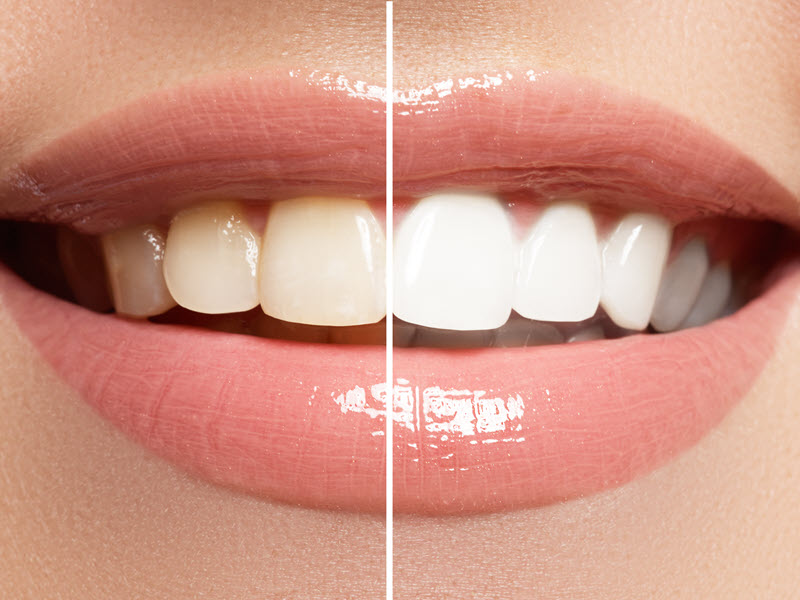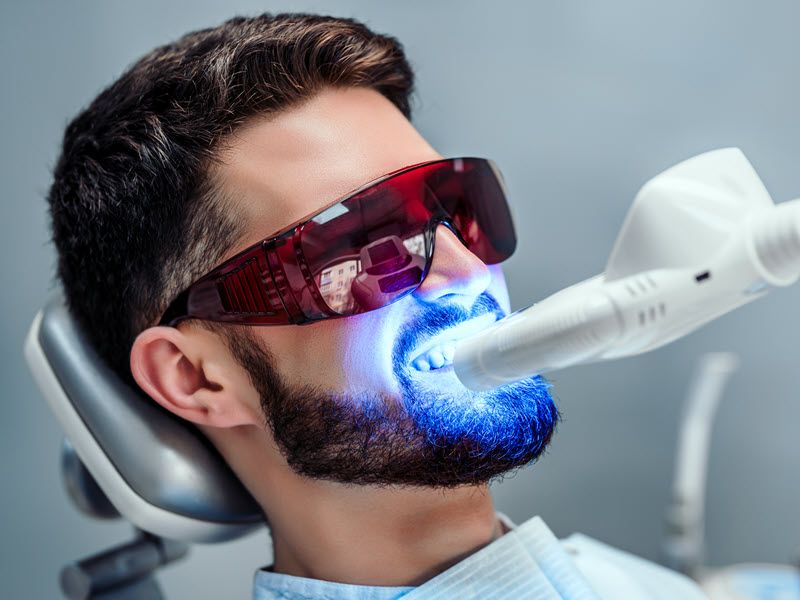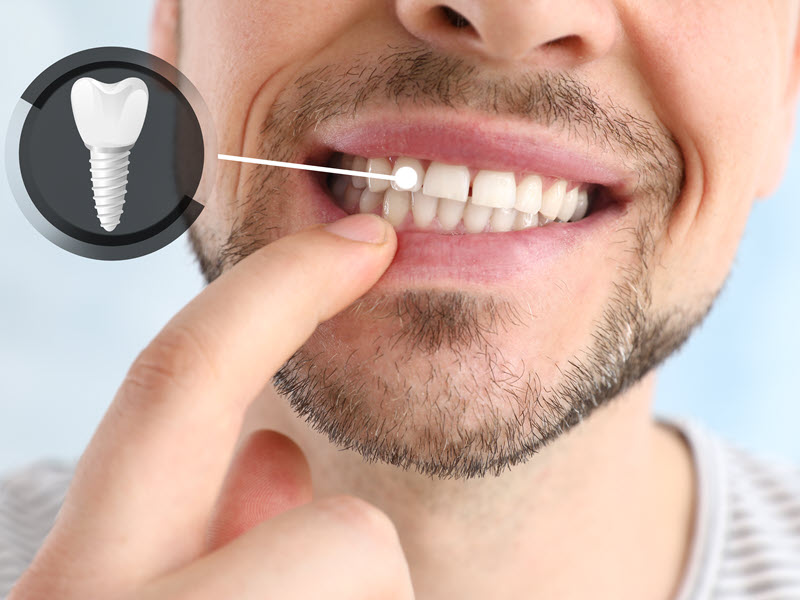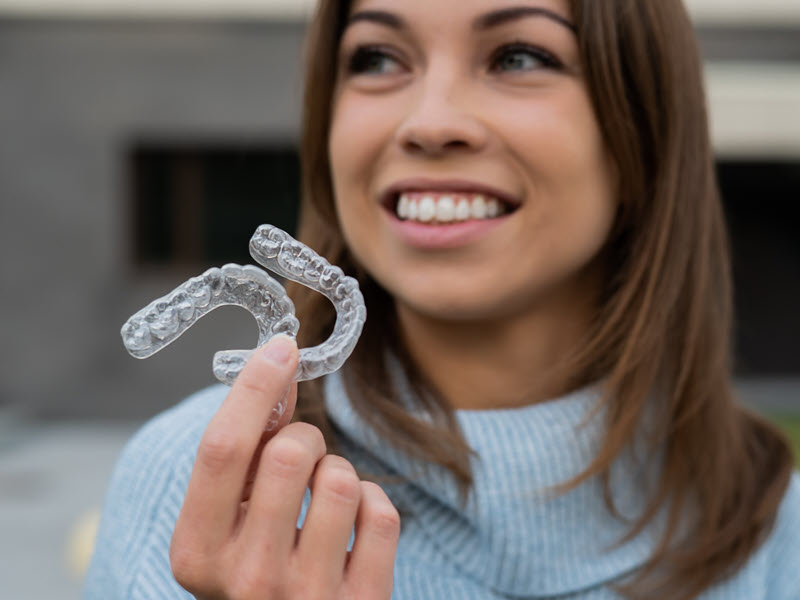The Most Effective Way to Replace Missing Teeth
What are Dental Implants?
Dental Implants Procedure
Dental Exam and Assessment
The assessment process involves taking x-ray images and CT Scans to determine the feasibility of implants for your specific situation. Using the latest technology the CT Scan is then used to generate a surgical guide that allows Dr. Murphy to plan an implant virtually and then accurately place an implant in the most safe, predictable, and efficient manner. In addition to increased accuracy, patients will also save chair time.
If you’re a good candidate for dental implants, the process will require at least two additional visits to our Fort Collins office after your initial exam. The procedures will vary based on your overall oral health and bone density. Below is the general process of getting a dental implant.
Tooth Extraction (for some patients)
Bone Grafting (for some patients)
The bone grafting procedure involves taking bone from another source, such as Alloplast (synthetic material), Xenograft (animal source) or Allograft (cadaver bone). The grafted bone will eventually fuse with the natural bone in the jaw, providing a strong foundation for dental implants.
Placement of Dental Implant
Placement of the Crown
Ongoing Oral Health Care
For patients, a major benefit of continuing ongoing care at our office is that patients will be treated using the AIRFLOW master which is a technique that is gentle to the gums and soft tissues of the mouth. Rather than using traditional metal tools such as cavitrons, air/water and powder are used to remove biofilm and plaque from the teeth and gums. With this latest technology the Hygienist will be able to maintain the health of the implant better than we have ever been able to do before, with minimally-invasive access to the periodontal pocket, restoration and implant without the need to remove crowns or prosthetics, the ability to reach deeper pocket depths, without harm.
Treatment for Peri Implantitis
At Murphy Dental patients have access to laser therapy using the Fontona Laser, the latest technology for treatment of Peri-Implantitis. This technology allows us to treat a failing implant vs. surgically removing the implant and starting the implant process over. The laser is in a minimally invasive technique in which the dead tissue is removed, sterilizing the infected area, and for the first time ever has the ability to regenerate healing, attachment of the tissue and regenerate bone, therefore stabilizing the once failing implant.
Fotona Laser Peri-implantitis Treatment Benefits:
- Minimally-invasive technique
No thermal damage to the surrounding bone - Fast regeneration/healing
- Reduced inflammatory response
- Greater long-term implant success
- Digitally controlled handpiece technology for unmatched levels of precision
Laser Treatment Details (How it Works)
Infection control, detoxification of implant surfaces, regeneration of lost tissues, and plaque-control regimens are all important aspects of peri-implant disease management. The Er:YAG laser is used to remove microbial composition from the implant without causing damage to it, as well as to treat the damaged alveolar bone surrounding the implant. Following Er:YAG treatment, Nd:YAG or a suitable diode laser wavelength is used to reduce bacteria and stimulate biostimulation. Laser therapy is effective for both peri-implant mucositis and peri-implantitis.
Peri-implant Diseases Explained
Dental Implants Benefits
Dental Implants Look and Feel Like Natural Teeth
Dental Implants Improve Chewing and Speaking
Dental Implants Last a Lifetime
Dental Implants Help Prevent Further Problems
Avoid Additional Stress on Teeth
Prevent Bone Loss and Tooth Movement
Superior to Dental Bridges
Better than Dentures
Dental Implants Look and Feel Like Real Teeth
What are the Different Types of Dental Implants?
Single / Multiple Tooth Implants
Mini Dental Implants
- Less Time Required – Mini dental implants can usually be placed in just one dental office visit.
- Less Invasive Surgery – The mini implant procedure occurs on top – rather than under the gums
- Less Stringent Bone Mass Requirements – Mini implants don’t require as much bone to be present for the implants to anchor to.
All-on-4 Dental Implants
Dental Implants Frequently Asked Questions
How Much Do Dental Implants Cost?
Dental implants will vary widely from patient to patient.
Some patients require additional procedures (like extractions and bone grafting) prior to implant placement. Some patients only need to replace a single tooth - other patients need full mouth implants.
There is really no way to tell how much dental implants will cost until you come in for a dental implant consultation. If the exam reveals that dental implants may be a good fit for you, we will come up with a treatment plan and an estimated cost.
The cost of not getting dental implants can actually be much higher than getting dental implants. Alternative dental procedures - like bridges - may actually create a situation that causes additional tooth loss and bone loss. This is due to the stress that a dental bridge puts on teeth that are surrounding the area vacated by the missing tooth.
Note that we have flexible payment options for our dental services. We accept cash and credit. We also accept financing through CareCredit. Additionally, we have an in-house dental plan that may be helpful for getting the dental care you need.
Finally, we accept most dental insurance plans - more details on that below...
Does My Dental Insurance Cover Dental Implants?
Most major dental insurers cover at least a portion of the cost of dental implants.
We're experts at navigating the complex world of dental insurance here at Murphy Dental. Call us with your dental insurance company information, and we'll be able to tell you how much your plan covers.
Is Dental Implant Surgery Painful?
This is a surgical procedure. We will keep you comfortable by applying local anesthesia in the areas that are being worked on. We also have sedation dentistry options - oral sedation, iv sedation and Nitrous Oxide - to make sure that you stay comfortable during all dental procedures.
What are the Different Types of Dental Implants Materials?
The two main types of materials used in dental implants are Titanium and Zirconia.
Titanium Dental Implants
Titanium dental implants are an extremely popular dental implant choice with patients for over 40 years. Titanium is considered "biocompatible". This means that it is usually readily accepted by the body.
Titanium has been used in dental surgery since the 1940s - and in other bone-related surgeries - like joint and spinal surgeries - since the 1950s. It bonds well with bone, making it a perfect choice for dental implants.
The success rate of Titanium dental implants is extremely high.
Zirconia Dental Implants
Zirconia implants are ceramic-based dental implants that are also compatible with the human body (similar to titanium implants).
They are naturally resistant to bacteria growth.
From an aesthetics standpoint, zirconia implants are tooth-colored, so they blend in a bit more along the gumline when compared to titanium implants.
It is difficult to track down reliable studies, but it appears that zirconia dental implants may have a higher incidence of failure than titanium dental implants.
Dental Implants Articles
As a service to our patients, we’ve authored additional articles about Dental Implants below based on questions that our patients have asked us. If you’d like to learn more about dental implants, contact our office.

Dental Implants vs Veneers
While both have aesthetic benefits, dental implants act as a full tooth replacement

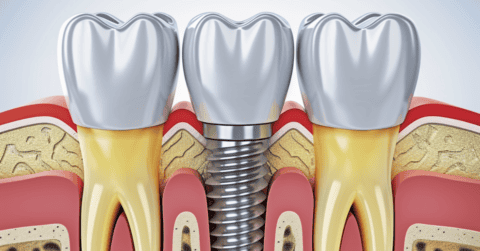
Pros and Cons of Dental Implants
Dental Implants Have Tremendous Benefits – along With Some Drawbacks

Reasons to Not Get Dental Implants
Dental Implants Aren’t For Everyone – Reasons You May Wish to Find an Alternative
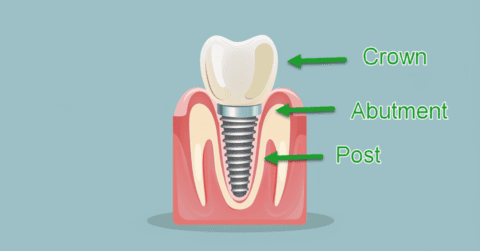
What Are Dental Implants Made Of?
The Materials and Parts that Comprise a Dental Implant






